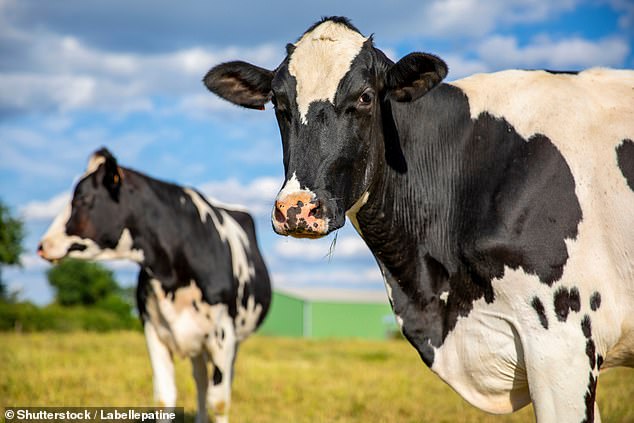All British cattle will receive Bovaer or similar products by law by 2030, under controversial government plans.
A document is circulating on social media mentioning a plan by the Department for Environment, Food and Rural Affairs (DEFRA) to require the use of “methane-suppressing feedstuffs” for English livestock.
It comes after furious Brits vowed to boycott more than a dozen brands over fears they were allegedly “contaminated” with the additive, which has been questionably linked to cancer.
Buyers originally focused on milks and butters made by Danish company Arla after the company announced a trial that would involve giving Bovaer to its cows.
Bovaer is a food supplement for livestock that, added to their diet, helps reduce the amount of methane they produce in digestion, a gas that contributes to climate change.
European and UK regulators have declared it a safe additive as it does not transfer into milk.
Experts have also told MailOnline that customers have nothing to worry about and that concerns about cancer risks are unfounded.
However, social media is awash with claims that it can cause fertility problems and cancer.
All British cattle will receive Bovaer or similar products by law by 2030, under controversial government plans. stock image
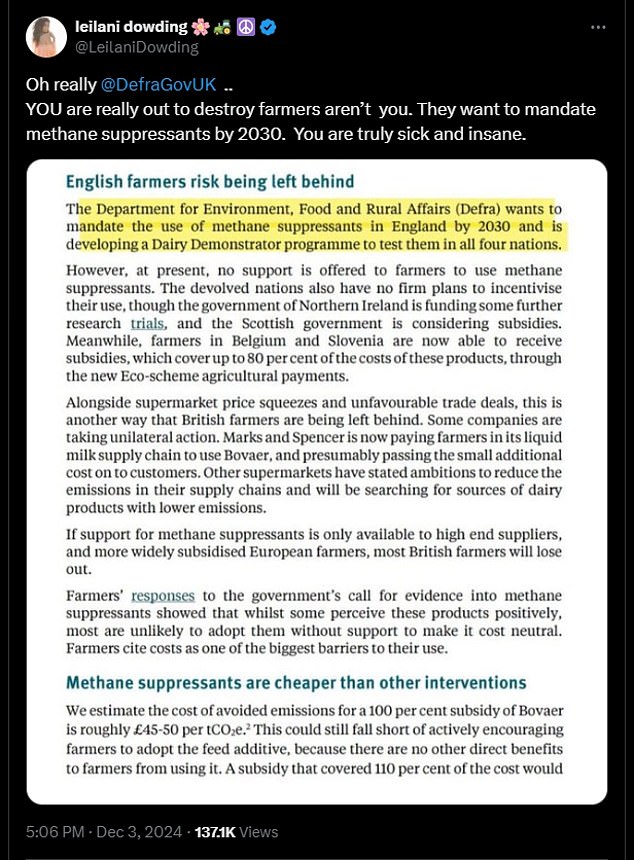
A document is circulating on social media mentioning a plan by the Department for Environment, Food and Rural Affairs (DEFRA) to require the use of “methane-suppressing food products” for English livestock.
The dispute could now extend to the entire livestock industry, both meat and dairy, with the Government planning to require by law the use of Bovaer-like products on “suitable” English farms “as soon as possible and no later than 2030”.
This commitment was made by the Department for Environment, Food and Rural Affairs last year, in a statement published by the then Conservative government led by former Prime Minister Rishi Sunak.
The then Agriculture Minister, Mark Spencer, said at the time: “We will continue to work closely with the industry to develop a mature market and mandate the use of safe and effective methane-suppressing feed products in suitable livestock systems in England as soon as possible. “.
The pledge was made as part of the plan to achieve net zero greenhouse gas emissions in Britain by 2050, a target the current Labor government has also committed to.
In a separate document looking at the use of such additives in the dairy and beef industries, DEFRA said it considers methane-suppressing food products “an essential tool to decarbonise the agricultural sector”.
The furore over Bovaer has led social media users to share a list of products and supermarkets that sell Arla products and to ask people to avoid them.
this included Lurpak and Anchor butters, both manufactured by the company, and Tesco and Asda, which stock own-brand milk supplied by Arla.
Experts have told MailOnline that customers have nothing to worry about and that concerns about cancer risks are unfounded.
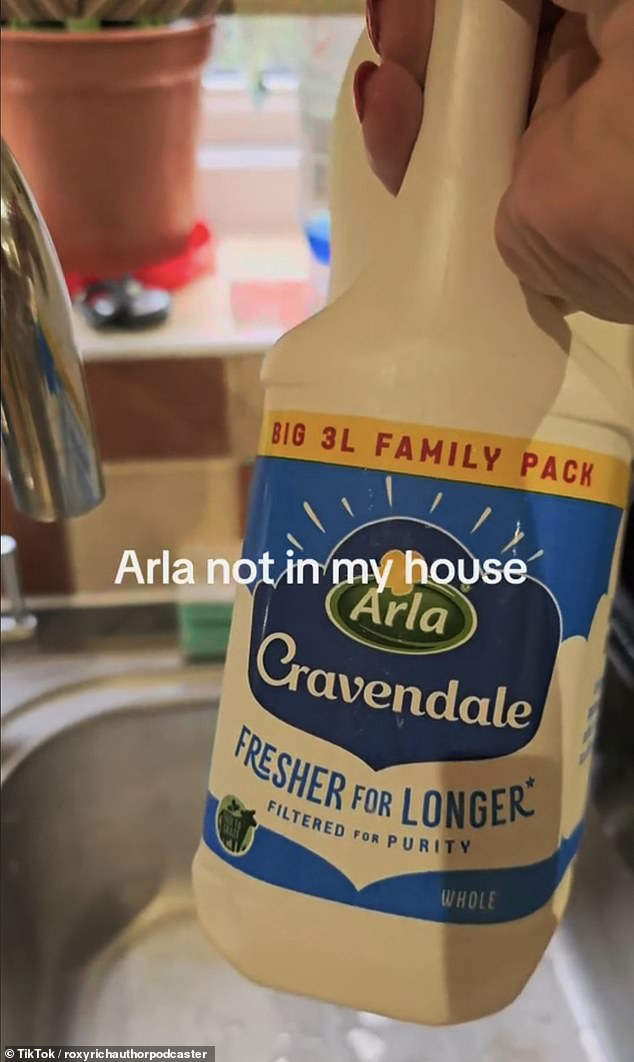
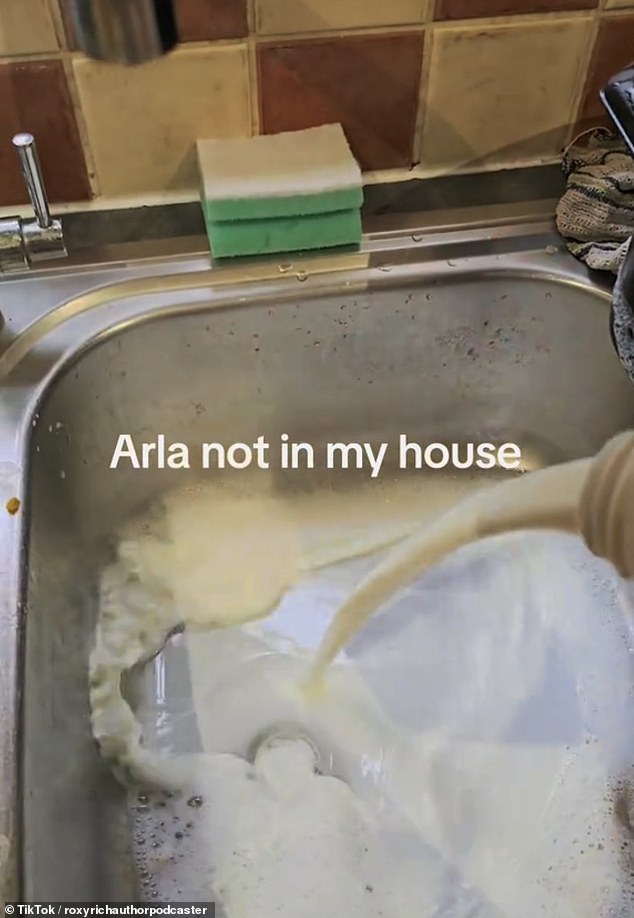
In a TikTok video viewed thousands of times, a user pours his Arla milk down the sink and adds: “Arla is not in my house.”
But social media is awash with claims that the additive can cause fertility problems and cancer.
The viral list, shared on X and Facebook, warns customers not to buy Arla and its sub-brands Arla Cravendale, Arla BOB, Arla Protein and Arla Lactofree.
Artisanal cheese brand Castello, Apetina, which sells white cheese and paneer, and Arla Organic are others on the blacklist.
It also warns consumers against brands that have partnerships with Arla Foods, including Starbucks, McDonald’s and Ecomilk.
Arla, he says, produces cold brewed coffee drinks for Starbucks, while also supplying dairy products for McDonald’s.
Virtually all major supermarkets have also been attacked by shoppers and are on the list.
They claim this is because Arla Foods produces products such as milk and cheese for some of its own brands, such as Asda. Other supermarkets sell Arla Foods products.
Since the list began circulating, dozens of Brits have taken to TikTok to share clips of themselves flushing dairy products down the toilet and throwing them into the bin.
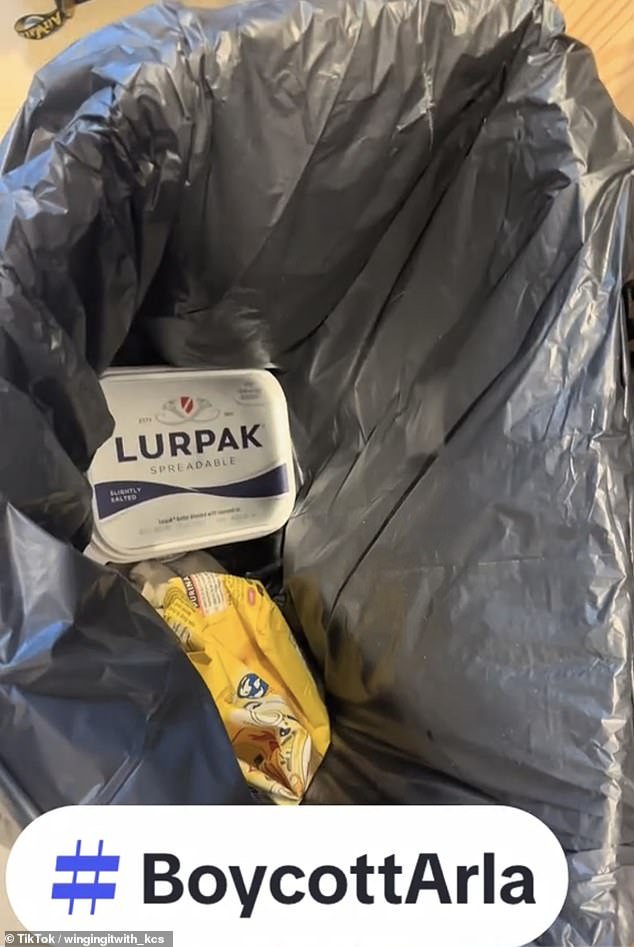
TikTokers have shared videos demonstrating their boycott by throwing food products in the trash
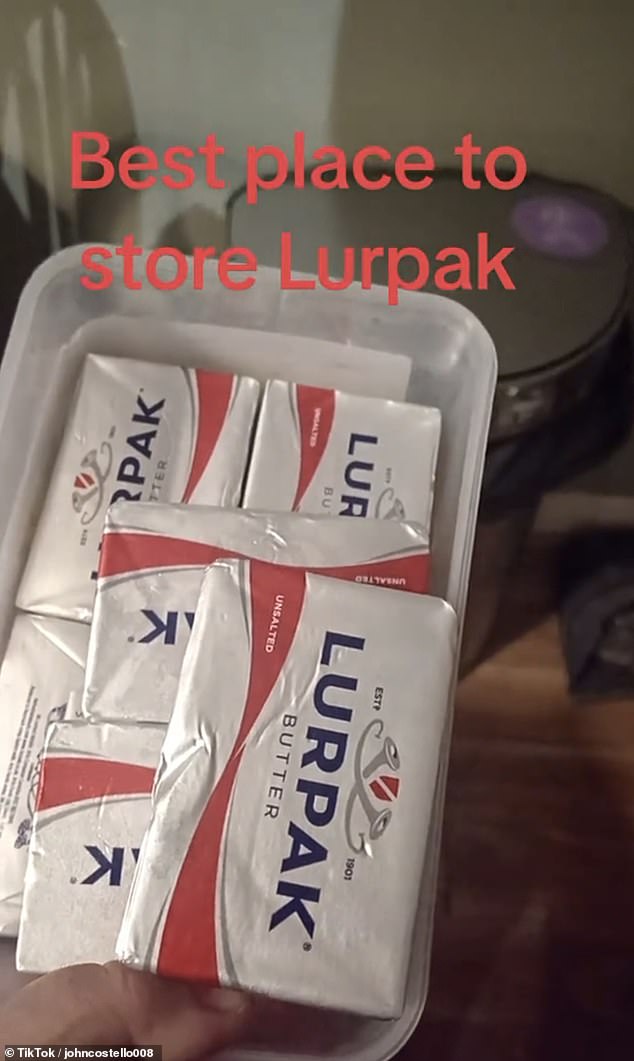
A man filmed himself with Arla products and told his followers they would “go straight down the drain.”
In a video viewed more than 1.6 million times, a man points to his bottle of Asda semi-skimmed milk which displays the label “from Arla farms”.
He adds: “This will go down the drain and I will never buy Asda milk again.”
Bovaer is a compound made of silicon dioxide, propylene glycol and organic compound 3-nitrooxypropanol which is abbreviated to 3-NOP.
Concerns spreading online about the additive mainly refer to regulators’ documents on handling the substance on an industrial scale.
One from the US Federal Drug Administration (FDA) says the product is not for human use.
It adds: ‘Caution should be used when handling this product. 3-Nitrooxypropanol can damage male fertility and reproductive organs, is potentially harmful when inhaled, and irritates the skin and eyes.
It goes on to advise that those who handle it should wear protective equipment, such as covering the eyes and mouth, and gloves.
Claims that it causes cancer focus on safety studies carried out in rats and evaluated by the UK regulator, the Food Standards Agency.
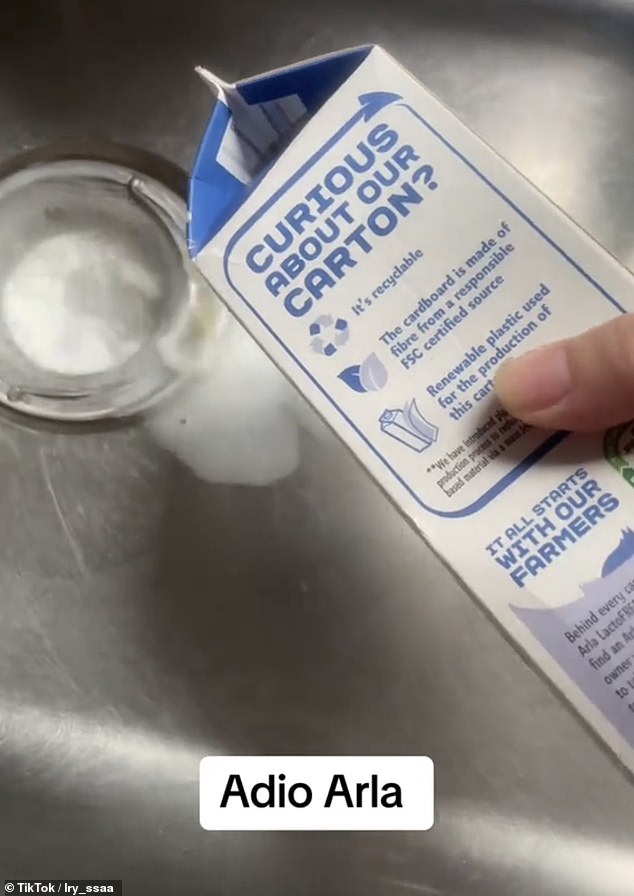
In a TikTok video, a user with more than 4,000 followers pours her carton of Arla milk down the drain.
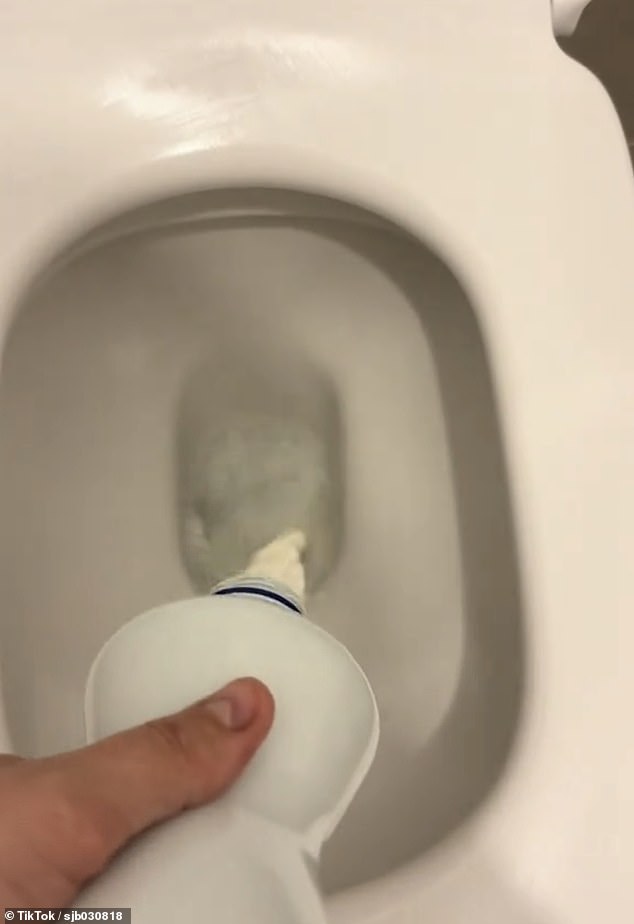
Another TikTok video posted yesterday captured a woman emptying her Arla bottle into the toilet before flushing it.
The results suggested that giving rodents a high dose of the product increased the risk of cancer in female rats.
However, a follow-up analysis found that disease rates were not statistically higher than the control group.
Bovaer’s manufacturer, Dsm-firmenich, said the social media storm had sparked “falsehoods and misinformation” about the feed.
In a statement they assured the public that “as long as it is used according to recommendations,” Bovaer “never passes into milk and therefore does not reach consumers.”
The supplement is also “specifically designed to break down in the cow’s digestive system and quickly breaks down into natural compounds already present in the cow’s rumen,” the Dutch-Swiss multinational added.
Bovaer’s product safety sheet recommends the use of masks and gloves when handling the additive to avoid risks “from small dust particles.”
But this is a “standard sheet” designed for workers at processing facilities, Dsm-firmenich said.
This simply “ensures safe use” and “such procedures are quite common for feed.”
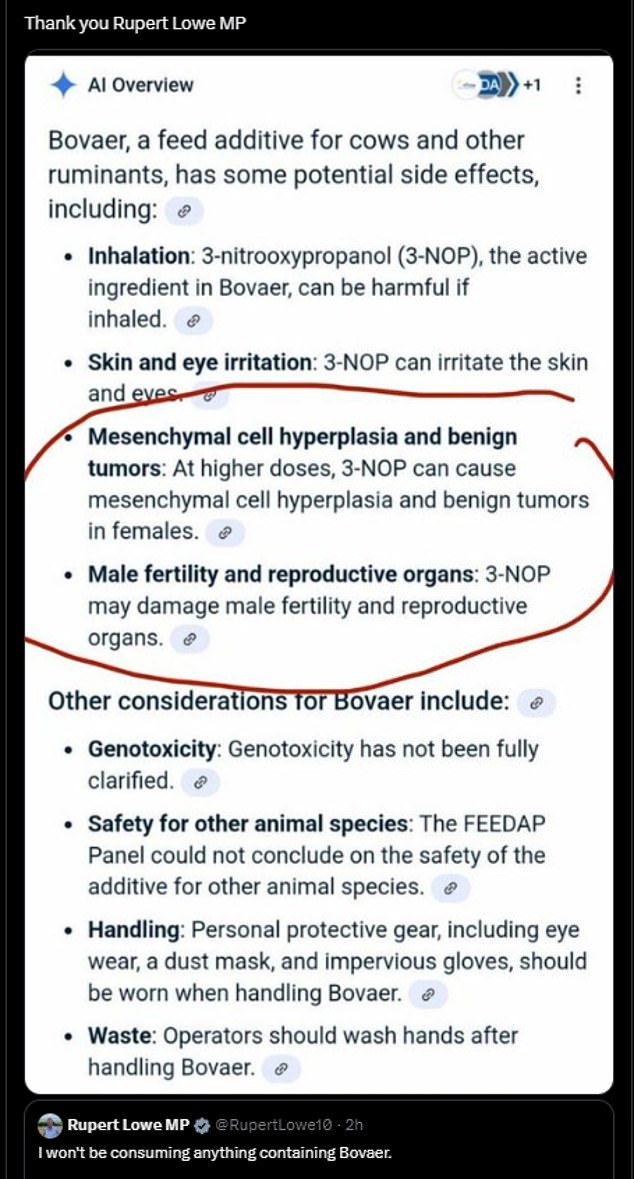
Great Yarmouth Reform MP Rupert Lowe intervened in the debate this afternoon and pledged to boycott the products.
A spokesperson for the UK Food Standards Agency also told MailOnline: ‘Milk from cows that have been given Bovaer, a food additive used to reduce methane emissions, is safe to drink.
“Bovaer has undergone rigorous safety assessments and is approved for use in Great Britain.”
Claims that the product is linked to Bill Gates also appear to have confused some social media users, intensifying the storm.
The Microsoft co-founder had invested millions in Rumin 8, an independent company developing similar methane-reducing supplements in early 2023.
Conspiracy theorists have wrongly linked the two companies without evidence.
Responding to the claims, an Arla spokesperson said: “The information spread online about our connection with Bill Gates is completely false and claims relating to his involvement in our products are inaccurate.”
They added: ‘The health and safety of both consumers and animals is always our number one priority.
“Bovaer has already been used widely and safely across Europe and at no point during the trial will there be any impact on the milk we produce as it does not pass from cow to milk.
“Regulatory bodies, such as the European Food Safety Authority (EFSA) and the FSA, have approved its use based on evidence that it does not harm animals or adversely affect their health, productivity or milk quality.”
A Bovaer spokesperson also said: ‘This has been developed in response to the need to reduce methane emissions.
‘It is a food supplement that the cow metabolizes, that is, it is not found in milk.
‘It has been tested for many years in many countries; It is completely safe and has been approved by regulators in Great Britain, the United States and many other countries.
‘There is no justification for the dissemination and amplification of this fake news. We are scientists, we are fact-based and would never market a product that was not safe.
“We are grateful to the independent experts, farmers and farmers’ organizations who have come forward to counter this misinformation.”

